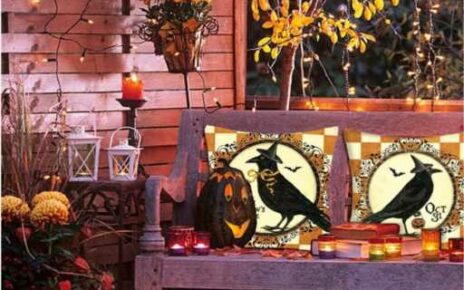Written by Christiana Spens
Rationalising habits that you know to be bad for you is no easy task. Throw in the complexities of love and relationships, and you’ll find yourself in even more of a bind. In this extract from her philosophical memoir The Fear, Christiana Spens works to untangle why people pursue ‘bad boy’ characters, and what drives us towards the things we shouldn’t want.
We should be afraid of them, or at least turned off by them, and yet we are often (also) attracted to them. It is a joke and an indulgence at times, but also a reality: our culture and many individuals love the idea of the rogue, the bad boy. Fear doesn’t deter attraction at all; sometimes, instead, it inflames it.
We want what is bad for us, sometimes – in a fervored, masochistic, romantic obsession. But why are people so compelled by masochistic, self-sabotaging desire, or at least stories of it? Why do we desire what is so bad for us, and why does a haze of nostalgia follow individuals who are so destructive?
In my own life, I have always been attracted to the bad boys, often apparently unaware that they could be genuinely dangerous (rather than just exciting or charming) until many months into a relationship, seemingly unable to see the red flags others may have seen clearly.
Even when I was aware of the red flags, I wanted to stay, because I loved them, and could not imagine life without them. I would know that everything was wrong and demeaned – I knew about all the lies and manipulation and undermining, the lack of care – and yet I did not want to let go, and so for as long as I could, I did not let go. I always held out that perhaps they could change, get better, and perhaps I could help them.
My weakness felt like a strength – it felt like love, like the closest, realest thing. The idea of willingly saying goodbye to that – and to the one I so deeply adored – felt like sacrilege. I was a slave to love, a hopeless romantic. I could not understand love without sacrifice, because it was all I had ever known. Even when I lost myself in these situations, I wanted to stay, to not be left. The losing myself part was, perhaps, I see now, a part of the attraction, if it meant that the person I loved stayed, if we could be together, transformed (for better or worse) into something more than our broken selves. I feared abandonment, and I feared myself. I feared change, feared letting go. Chaos in a person I loved, and in a relationship with them, seemed preferable to the chaos and emptiness – the fearfulness – of being alone.
Over the years, and several relationships alike in this way, I realised that masochism is more complex than being simply a trauma response, or merely a form of “flight” or “freeze” when faced with danger. It was something I really chased, however unconsciously. It was something that, on some level, I wanted to experience again and again and again, as if I would somehow know more or feel more if I kept chasing what I could not have and was not supposed to want. It was an act of rebellion, a search for impossible freedom. My life felt empty without the extremes of emotion, the turbulence of toxic love. I missed it whenever it was gone. I was addicted to it, in a way, and this desire would eclipse my own sense of self-preservation and sense.
In some attempt to understand and override whatever was compelling me to be this way, I first looked to Sigmund Freud, who explored masochism as a challenge to what he termed “the Pleasure Principle”, essentially the will to self-preservation and life itself.
Freud also wrote about the “Compulsion to Repeat” which he saw as a drive distinct from the Pleasure Principle. Here, by repeating experiences, people transform their relationship to those original experiences and often diminish the power that the root memory, or fear, has on them. In a sense, by reclaiming a traumatic memory, for example, by repeating it on one’s own terms, one may diminish its power and hold. This melancholic nature that expresses itself in repeated departures, in a sort of indulgence in the tragedy of love and loss, and indeed life itself, can begin to explain why we, as humans, become involved in compulsive patterns of pain and self-denial in reaction to fear.
Although many of Freud’s theories have been challenged in the century since they were published, this idea about masochistic behaviours following childhood trauma (in particular) resonates with more recent research into PTSD, and how the mind becomes stuck in a loop, in a sense, in a dysregulated “fight or flight” mode, where responses become defined by a past trauma.
In this sense, the traumatised individual is prone to cyclical behaviour in which any lasting release or peace from anxiety and anguish is hard to access. Therein, addictive or compulsive behaviours become a default behaviour that’s very hard to escape from.
Masochistic tendencies, in this sense, can be understood as the learned behaviours or habits of a traumatised individual seeking relief and incremental power over their own unresolved pasts. The problem, of course, is that by repeating painful scenarios, even if they provide temporary relief through a power shift, can also in themselves complicate and even deepen the original trauma.
Jacques Lacan developed his own theory of “jouissance” in response to Freud’s ideas, and suggested that desire itself is compulsive and somewhat detached from the satisfaction of one’s needs. Lacan, following Freud, understood that desire, whether sexual or otherwise, is more complex than fulfilling one’s basic needs or finding straightforward pleasure; we do not always want what we need, and vice versa. There is pleasure to be found in the striving itself, in the tension of the chase and the ambivalence and even fear it may cause. As he wrote, “the subject does not simply satisfy desire, he enjoys desiring and this is an essential dimension of his jouissance”.We want what we cannot have, what we are not allowed, what is not good or right. We want bad and harmful things: why?
Evidently there is an eroticism interconnected with a surrender and even chasing of ambivalence, chaos and precarity – of loss itself. There is also something compelling about indulging in the behaviour of the femme fatale, for instance – to be the siren, the death wish, the doomed romantic, the fallen woman. It’s an act of rebellion. There is something tempting and satisfying about giving in to these things and therefore surrendering to chaos, in another person and oneself.
We can still understand this behaviour as a form of “fight or flight”, a perpetuation of unresolved trauma through cycles of pain and relief, which can be addictive and compulsive. Trauma is not unusual; in fact, trauma is usually a part of life. We are primed to live with and react to it, and such a life may inevitably involve suffering. This fact perhaps helps to explain why people are set up to lean into their own suffering to some degree, in some effort to reconcile with it and learn to live with it.
It seems clear, now as then, that we do not always want what is good for us or other people. We indulge in our dark sides, our shadows, because they offer us some feeling of connection, of truth even, about ourselves and our experiences, and our capacities to relate to others in whatever way feels right. They allow us to repeat what we don’t understand, what we have loved and lost, what we need but can’t have, what has hurt us, confused us and trapped us. We make peace with our own ends before death itself has come. We meet it halfway. We tease it with self-destructive behaviours, with submission on our own terms, and therein lies both the beauty and madness of being alive and wanting.
This extract was edited for length and clarity.
The Fear by Christiana Spens, £12.99, available from 14 March 2023
Source: Read Full Article

